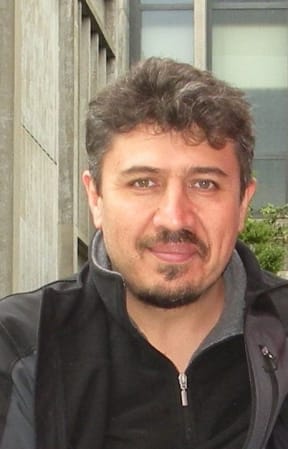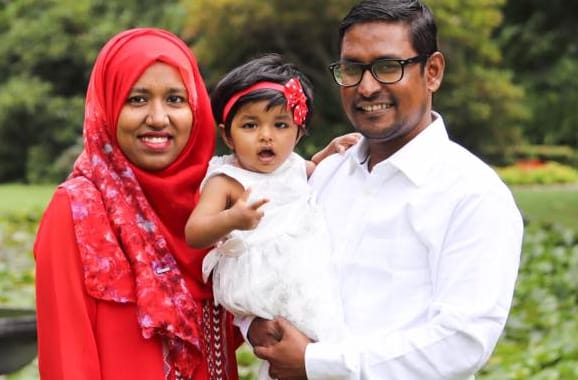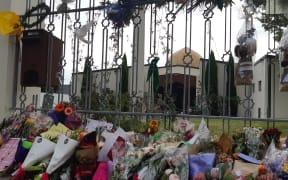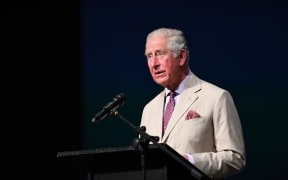The man tasked with speaking to the grieving and injured after the Christchurch mosque shootings said bureaucracy was not set up to deal with traumatic events.

Raf Manji Photo: supplied
Raf Manji is an independent adviser to the Christchurch Foundation, which will distribute the remaining $9 million in funds to the victims and families of the shootings.
The foundation received a total of $11m in donations, of which $2m has already been distributed.
It has been just over eight months since a gunman killed 51 people at two mosques and wounded 40.
The two consecutive terrorist shooting attacks during Friday prayers on the 15 March this year began at the Al Noor Mosque in Riccarton and continued at the Linwood Islamic Centre.
Mr Manji told RNZ's Nine to Noon that there were gaps in agency responses to the aftermath. He said a system that dealt quickly and practically with an extreme situation was needed.

Zekeriya Tuyan Photo: supplied
Hamimah Tuyan's husband Zekeriya Tuyan was among the victims of the shootings.
He died from his injuries two months later, after a hard fight, and earned the nickname Eteru.
"My husband is not called Eteru for nothing.
"There was this popular Turkish movie out at the time, called Eteru, about a hero in Islamic history and people were calling him that, so he lived up to that nickname people had been calling him - that hero, Eteru."
Mrs Tuyan is now back in Singapore with her two sons.
She said at the time, no one could have done more than the doctors, nurses, therapists and social workers, some of whom learned Turkish in order to help.
"They were amazing, if amazing is ... it's underestimating the amount of work and heart they put into what they did for my husband and all the other people in the hospital.
"I can't thank them enough."
Shadia Amin's 68-year-old husband Ahmed Abdel-Ghany, along with a dozen of their friends, died at the Al Noor Mosque.
She worried about the young widows and their children, who she said remained vulnerable.
"This money ... it's a lot of money and some of them, they don't have experience enough. There should be a system in place to protect these widows, because some of them, they don't speak English, some of them, they don't work and they have kids."
Mrs Amin said it had been difficult to navigate all the different help available.

Sheikh Hasan Rubel, his wife Afsana and daughter Arveen. Photo: supplied
Sheikh Hasan Rubel was shot three times inside the Al Noor Mosque.
The 34-year-old accountant was in constant pain and could work only half a day each week.
He was now battling with the knowledge he has high levels of toxic lead in his blood.
"That's causing some mental [health] problems.
"I strongly believe it will take some time, but I'm highly confident that I'll overcome those problems."
Understanding the needs of the community
The former Christchurch City Councillor was appointed by the Christchurch Foundation as an independent adviser, to consult with the community, and recommend how the money should be distributed.
Mr Manji said most agencies had done the best the could, but civil servants were constrained by the rules under which they operated.
"For example, someone's got residency and they should be accessing the family tax credit, but oh, they can't because they haven't been here for a year.
"Well who cares, they've got the residency, and there were bits and pieces like that so we have been doing the support until they get the sign-off.
"I think when you're dealing with what is a small group of people - let's say 100 families, you can take that into a different system and deal with them through a single pipe."
Mr Manji said many agencies did a great job, but there was no way to ask how the victims felt.
"How can you really understand the needs of the community without going to talk to them, and that means you have to go to people's houses, sit down with them, have a cup of tea and let them talk to you about their experience, which is when stuff comes up you can help with."
The foundation will pay $70,000 to each of the widows and $25,000 to the bullet injured.
Several welfare funds to support the victims, including an education fund for the 50 children who lost their fathers, will also be set up.
Mrs Tuyan said they were eternally grateful.
"I extend my sincerest gratitude to each and every donor, individuals, groups and organisations for their phenomenal generosity and solidarity."
Mr Manji said it would be at least five years before the community was back on its feet.






